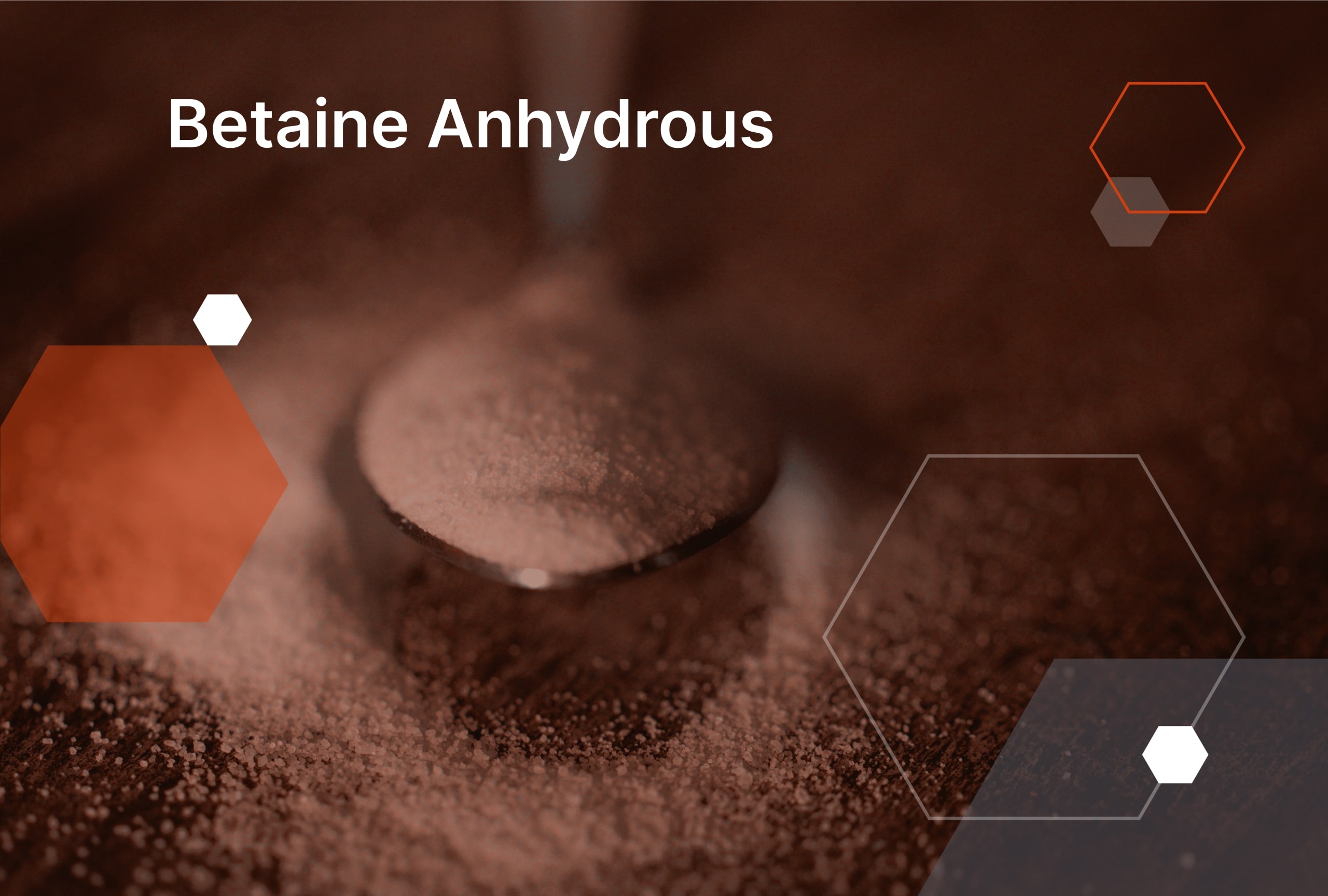
What is Betaine Anhydrous used for?
Kemiex is an all-in-one market information, purchasing and sales platform for animal and human nutrition raw materials. In the following series of articles, we will explain the functions and uses of products that can be found in the Kemiex marketplace. On this occasion, we are going to explain the benefits of Betaine Anhydrous:
What is Betaine Anhydrous used for?
Betaine Anhydrous, also known as Trimethylglycine, is a naturally occurring compound that is found in a variety of foods, including beets, spinach, and whole grains. It has a wide range of uses and benefits, particularly in the fields of sports nutrition and health supplements. In this article, we will explore the uses of Betaine Anhydrous in more detail.
What are the main uses of Betaine Anhydrous?
1. Sports Nutrition:
Betaine Anhydrous is commonly used in sports nutrition supplements due to its ability to increase power, strength, and endurance. It works by helping to increase the body’s production of creatine, which is an essential component of muscle growth and repair. Additionally, Betaine Anhydrous may help to reduce fatigue and improve recovery time after intense exercise.
2. Health Supplements:
Betaine Anhydrous is also used in a variety of health supplements. It has been shown to have a positive impact on heart health by reducing levels of homocysteine, a compound that has been linked to an increased risk of heart disease. Additionally, Betaine Anhydrous may help to improve digestion and nutrient absorption, as well as reduce inflammation in the body.
3. Liver Health:
Betaine Anhydrous has been shown to have a positive effect on liver health. It works by helping to reduce fatty deposits in the liver and improve the liver’s ability to process toxins. This makes it a valuable ingredient in supplements designed to support liver function and overall health.
4. Feed production:
In addition to its primary uses, Betaine Anhydrous is also used in a variety of other products and industries. It is used as a feed additive in the agriculture industry to improve the growth and health of livestock.
5. Other Uses:
Betaine Anhydrous is also used as a component in some industrial processes, such as the production of paper and textiles.
Which foods are the main sources of Betaine Anhydrous?
Here are 10 foods that are good sources of Betaine Anhydrous:
1. Beets: Beets are one of the richest sources of Betaine Anhydrous, with a concentration of approximately 175-200 mg per 100 grams.
2. Spinach: Spinach is a good source of Betaine Anhydrous, with a concentration of approximately 110-140 mg per 100 grams.
3. Quinoa: Quinoa is a nutrient-dense grain that is also a good source of Betaine Anhydrous, with a concentration of approximately 130-140 mg per 100 grams.
4. Wheat bran: Wheat bran is high in fiber and is also a good source of Betaine Anhydrous, with a concentration of approximately 90-100 mg per 100 grams.
5. Whole wheat bread: Whole wheat bread is a good source of Betaine Anhydrous, with a concentration of approximately 60-70 mg per 100 grams.
6. Rye bread: Rye bread is another good source of Betaine Anhydrous, with a concentration of approximately 50-60 mg per 100 grams.
7. Shrimp: Shrimp is a good source of Betaine Anhydrous, with a concentration of approximately 60-70 mg per 100 grams.
8. Crab: Crab is another seafood that is high in Betaine Anhydrous, with a concentration of approximately 50-60 mg per 100 grams.
9. Turkey: Turkey is a good source of Betaine Anhydrous, with a concentration of approximately 40-50 mg per 100 grams.
10. Pork: Pork is another meat that is high in Betaine Anhydrous, with a concentration of approximately 30-40 mg per 100 grams.
It is important to note that the Betaine Anhydrous content of foods may vary depending on factors such as growing conditions and processing methods.
What are the main benefits of Betaine Anhydrous for animals?
Betaine Anhydrous, also known as Trimethylglycine, has several potential benefits for animals. Here are five of the main benefits:
1. Improved growth performance: Studies have shown that adding Betaine Anhydrous to animal diets can lead to improved weight gain and feed conversion, particularly in pigs and poultry.
2. Increased nutrient digestibility: Betaine Anhydrous has been shown to improve the digestibility of nutrients such as amino acids and phosphorus in animal feed, which can lead to better overall nutrition.
3. Improved meat quality: Betaine Anhydrous has been shown to improve the quality of meat in poultry and pigs, including increased tenderness and juiciness.
4. Reduced stress: Betaine Anhydrous has been shown to have anti-stress properties in animals, particularly during periods of heat stress. This can lead to improved animal welfare and productivity.
5. Enhanced immunity: Betaine Anhydrous has been shown to have immune-enhancing properties in animals, including increased production of antibodies and improved disease resistance.
Where to buy bulk Betaine Anhydrous and get market information?
In Kemiex, we offer a safe and private online environment to buy and sell raw materials for the Feed, Food, Veterinary, and other life science industries. We also offer market information such as Price Trends, Trade Flows and Market News for all the micro-ingredients of the mentioned industries.